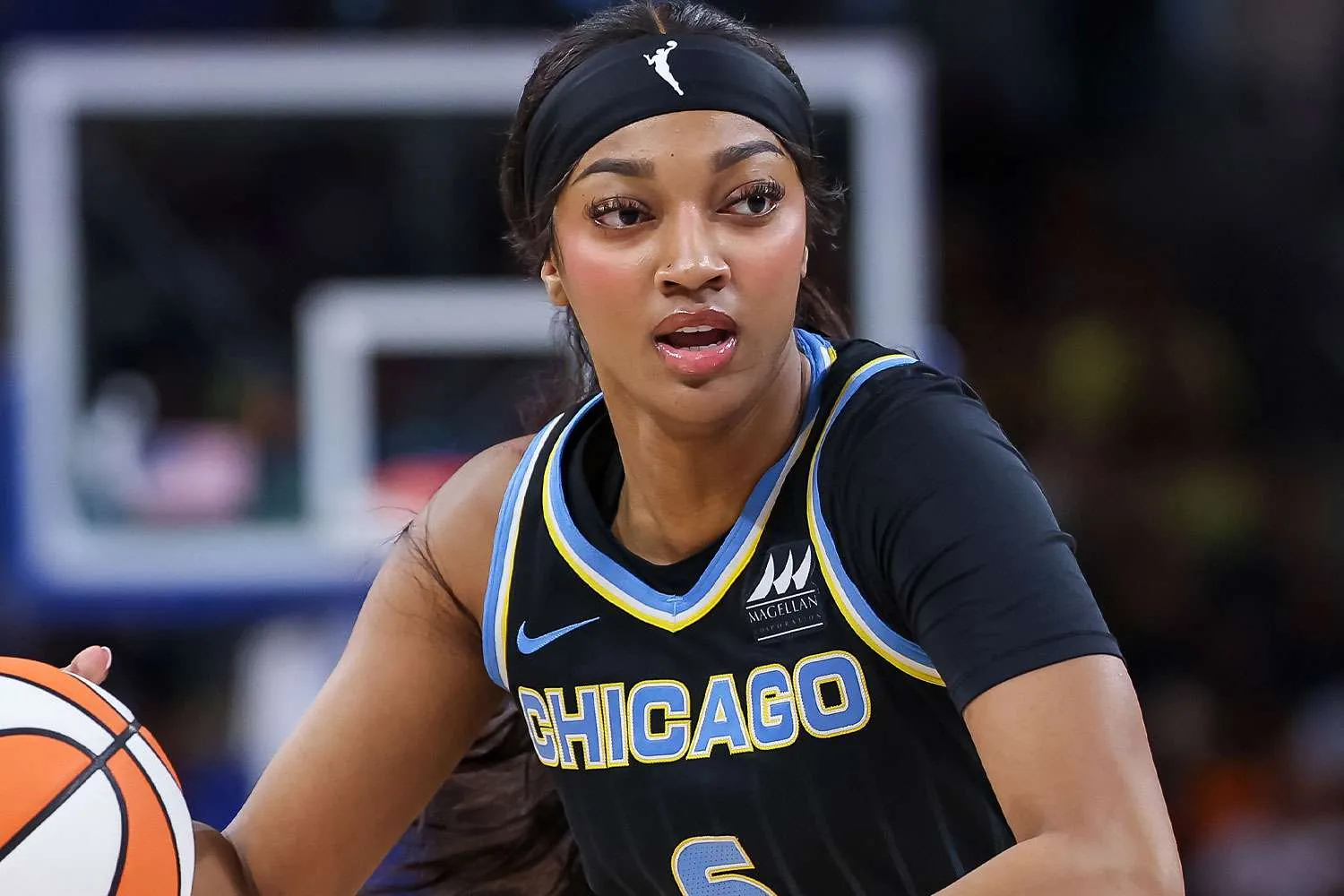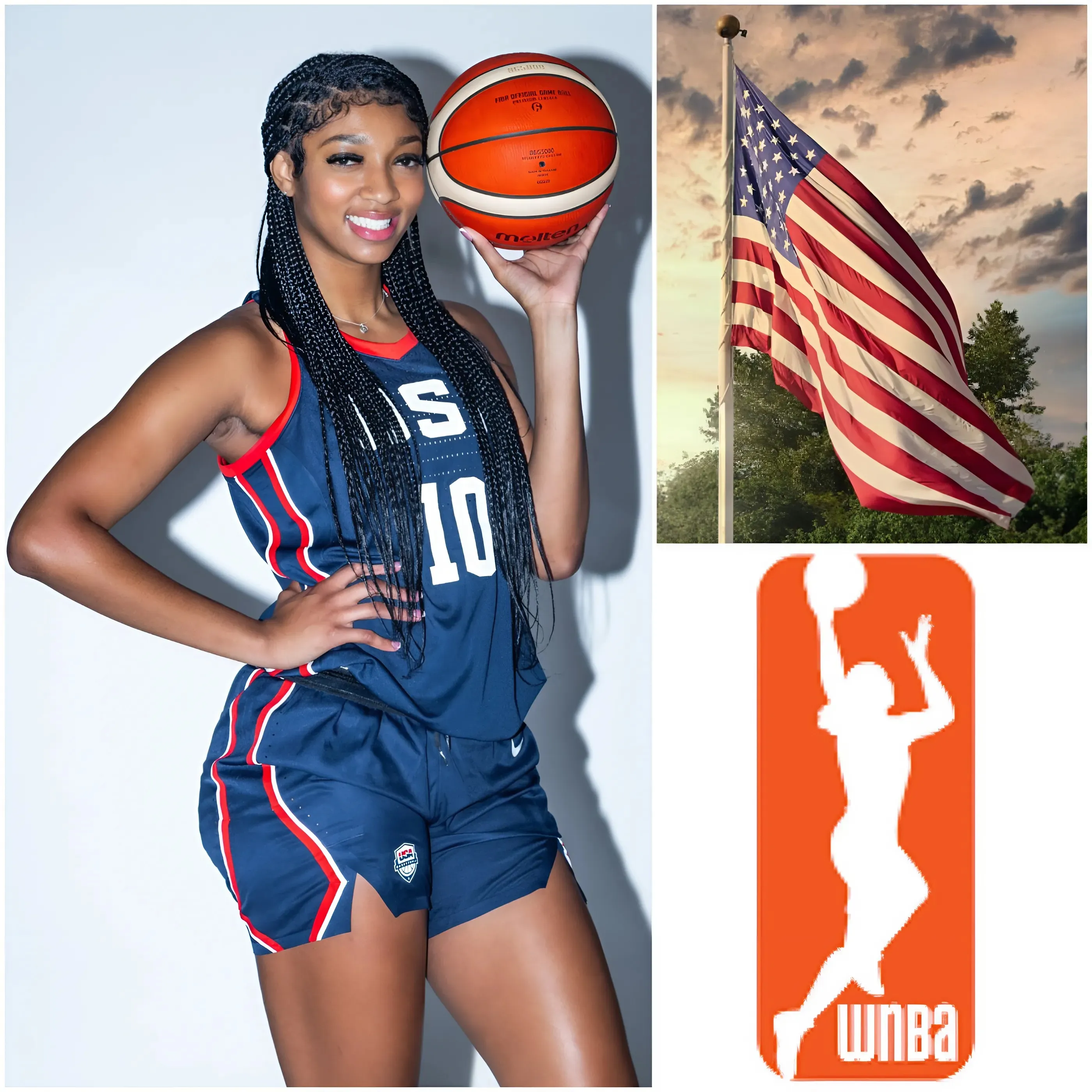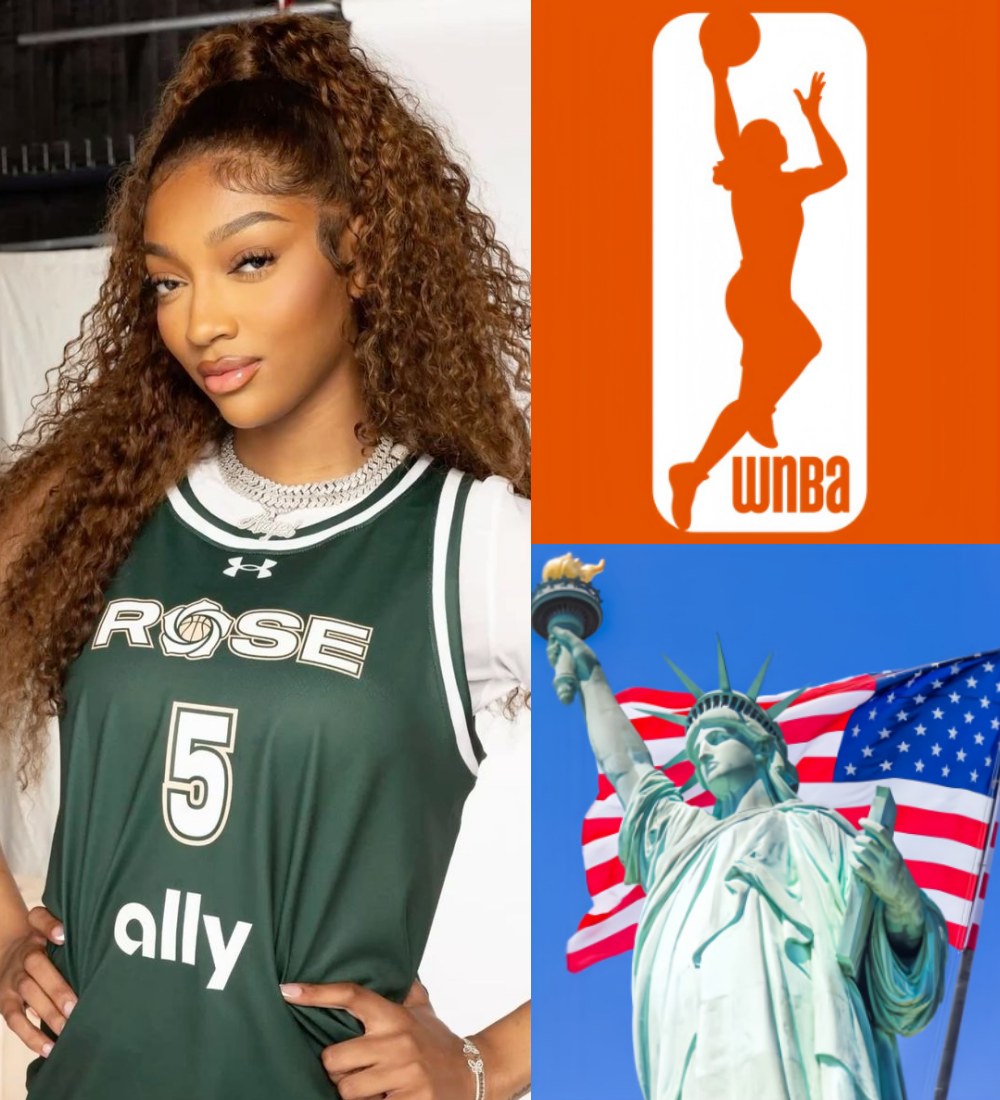
The American sports world was rocked this week after Chicago Sky forward Angel Reese made a stunning announcement: she plans to leave the United States. In an emotionally charged statement, Reese declared, “I’m leaving the United States—this country is not worth me!” The comment immediately sent shockwaves through the sports community, reigniting long-standing debates about how female athletes—especially women of color—are treated in professional sports, and sparking speculation about what led to such a dramatic move.
Angel Reese, known as the “Bayou Barbie,” has always been one of the most polarizing figures in women’s basketball. Her boldness on the court and unfiltered personality off of it have made her both a fan favorite and a lightning rod for criticism. But this time, the controversy isn’t about a hard foul or a viral social media post. It’s about something far deeper—Reese’s growing disillusionment with her treatment in the WNBA and what she sees as systemic disrespect, both from the league and from the country she represents.
The tipping point, sources say, was a prolonged dispute over her salary and status in the league. Although Reese is one of the most talked-about players in the sport and has generated significant media attention since her NCAA days at LSU, her rookie salary in the WNBA stands at just over $74,000—far below what her male counterparts in the NBA make, and even lower than what she reportedly earned through NIL deals in college. While she remains a valuable asset off the court, bringing sponsorships and fans to the game, Reese feels her worth is not being reflected in her paycheck or in the way she’s being treated by the league and media.

Sources close to Reese have confirmed that frustration over money was not the only factor in her decision. There’s also a growing sense that she’s not fully respected for her contributions to the sport. In the wake of the Caitlin Clark phenomenon, Reese has frequently found herself in the shadows of her former NCAA rival, despite playing a key role in growing the visibility of the women’s game. Many fans have noted the disparity in media coverage, public praise, and marketing opportunities, with Clark often being seen as the new face of the league while Reese is portrayed more as the antagonist in the narrative.
That perceived double standard has weighed heavily on Reese, insiders say. “She’s tired of being the villain,” one source said. “She’s tired of being scrutinized every time she opens her mouth or plays a physical game. She feels like there’s no room for her to just be herself.” Combine that emotional fatigue with an ongoing salary dispute, and it appears Reese has reached a breaking point.
Reese has not yet confirmed where she plans to go, but speculation is swirling. European leagues in countries like Turkey, France, and Spain have a long history of offering significantly higher salaries and more supportive environments for female basketball players. Asian leagues, particularly in China and South Korea, have also become attractive destinations for American players looking to earn more and escape the scrutiny of the U.S. spotlight.
If Reese does make the move overseas, she wouldn’t be the first. Many WNBA stars, including Diana Taurasi, Brittney Griner, and Breanna Stewart, have spent offseasons playing abroad—some even prioritizing international play due to better financial incentives. What makes Reese’s case unique is the tone and finality of her statement. This isn’t about playing overseas during the WNBA’s offseason. It’s about leaving America entirely, perhaps permanently, and stepping away from the league altogether.
Unsurprisingly, reactions have been deeply divided. Social media erupted within minutes of Reese’s announcement. Supporters praised her courage, with hashtags like #StandWithAngel and #KnowYourWorth trending on X (formerly Twitter). Many saw her as standing up not just for herself but for all women athletes tired of being underpaid and overcriticized.
“She’s doing what a lot of us wish we could do—walk away from toxic environments and demand respect,” one fan posted. “She’s not just leaving. She’s making a statement.”
But critics have also been vocal. Some accused Reese of being ungrateful, immature, or unwilling to face pressure. Others suggested that instead of quitting, she should rise above the criticism and prove her value on the court.
“She acts like she’s the only one under pressure,” one commenter wrote. “Newsflash: Every pro athlete faces criticism. You deal with it. You don’t run from it.”
Even some in the sports media questioned whether Reese’s move is strategic or emotional. Is she leaving because of real systemic issues? Or is she reacting to a string of recent frustrations that, while legitimate, don’t justify walking away from a career still in its early stages?
Regardless of the motivations, one thing is clear: Angel Reese remains one of the most talented and influential players in women’s basketball today. Her departure—if it happens—would be a major loss for the WNBA, both from a competitive and commercial standpoint. With her massive fan base, cultural relevance, and ability to sell out arenas, Reese is a brand unto herself. Her absence would leave a noticeable void in the league.

The WNBA has been making efforts to improve player conditions, including a recent $50 million investment in charter flights and discussions around salary cap increases. But Reese’s announcement suggests that for some players, the change isn’t coming fast enough. The league now faces a difficult question: how can it retain its brightest stars if they feel more valued elsewhere?
Meanwhile, Reese is staying active. Reports suggest she is already fielding offers from international clubs and has begun exploring opportunities in fashion, media, and entrepreneurship. Whether or not she returns to the WNBA, she’s unlikely to disappear from the spotlight anytime soon.
As the dust settles, the sports world is left with lingering questions. Did Angel Reese make the right call? Will her departure prompt real change in the WNBA? Or will it simply be viewed as a moment of frustration from a player who felt she had no other choice?
Only time will tell. But one thing is for sure—when Angel Reese speaks, the world listens. And this time, she didn’t just speak. She shouted.
